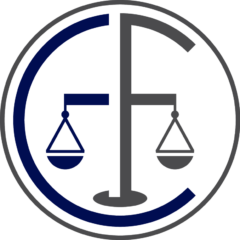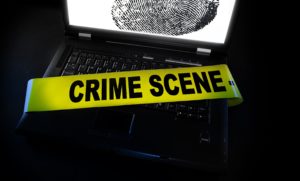Child pornography (CP) or Child Sexual Abuse Material (CSAM) has been a particularly prevalent problem since the widespread adoption of the internet in the late 1990s. As technology has developed, law enforcement has responded with more sophisticated tools to stop and arrest people who possess this material.
North Carolina’s and federal laws against child pornography date back decades. But before the internet, such crimes were relatively rare and only made an appearance when people were caught either distributing such materials through the U.S. postal mail or in literal films. Given the difficulty of secretly distributing physical photographs or films, such material was uncommon and only the most ardent child porngraphers engaged in this conduct.
But with the internet, the activity has become more prevalent for two reasons. First, the ease of distribution, duplication, and storage means that contraband material – as is true of entirely legal documents and photographs – can be quickly downloaded and shared. Second, social media’s isolating distorts peoples’ perspective regarding appropriate conduct. What may begin as a person’s viewing of legal pornography, can, in certain circumstances, descend into a rabbit hole on parts of the internet where child abuse material is located.
The vast majority of people who view adult pornography never look at child pornography. But everyone who looks at child pornography has looked at adult pornography.
How Is Child Pornography Prosecuted at Trial?
In 15 years of practicing law, I have been required to see child pornography just once in defense of a case that recently went to trial in Wake County Superior Court. Most lawyers who practice in this area are never required take these cases to trial because most CP cases resolve either because of a successful suppression motion or in plea deals, often to Second Degree Exploitation of a Minor. A typical plea deal involves lengthy probation or a short active sentence followed by lengthy probation.
Various steps can be taken to mitigate or reduce punishments, but it is nearly impossible to win a typical case at trial. Whether a case is typical depends on a careful evaluation of the facts and legal issues.
While I have defended – and won – murder trials, gun trials, drug trials, and white collar trials, I’m among a very small minority of attorneys who has been required to defend a child pornography at a jury trial. Even prosecutors who focus on this area rarely need to go to trial because most defendants realize that a plea offer is far better for them.
The reason these child abuse material cases mostly do not go to trial is because the CSAM material is so appalling that, if the case is not won on a search issue, clients realize twelve normal human beings sitting on a jury will convict them upon seeing the material and learning it came from their computer.
And given that “age difficult” material – images of minors who are close in age to adults – is rarely prosecuted, the material in a child pornography trial is always of young children. There is no mistaking the horror.
While a lawyer may offer to stipulate that the material satisfies the definition of a depiction of sexual activity by a minor, thereby sparing the jurors from looking at it, the State may refuse the stipulation – as is its right – and opt to show the material to the jury.
Precautions Taken Before and At Trial
Before trial, precautions are taken given the nature of the contraband CSAM so as to avoid the further distribution of the material. Since there is no exception in state or federal law that permits defense attorneys to possess this material, the images and video of child pornography are not turned over to defense attorneys as part of normal discovery procedures.
Defense attorneys are permitted to view the material in special rooms in federal or state law enforcement buildings. But they cannot take copies of the items to show their clients, nor can they take copies to their offices.
In 15 years of practicing criminal defense, I have been to a specialized room – sometimes called a Sensitive Compartmentalized Information Facility (SCIF) – on only a few occasions.
In my trial, the judge took special precautions. While courtrooms are normally open to the public, other lawyers, and family members, a judge can order the courtroom closed in certain circumstances. After making findings that, given the nature of the material to be displayed, the courtroom needed to be secured, the doors were locked, and just the court officials – including lawyers – and the defendant and the jurors were permitted in the courtroom.
The material was displayed on a monitor placed in front of the jury. Copies of the CSAM were put in an envelope for me – the defense lawyer – and the judge to review as the prosecutor displayed the material to the jury.
Some jurors wept.
The sealed envelopes were returned to the prosecutor.
How Does Law Enforcement Catch People?
A typical case involves a report – called a Cybertip – from an Electronic Service Provider (ESP) to the National Center for Missing and Exploited Children (NCMEC). The Cybertip is usually a 6 to 8 page document that is outlines the nature of the tip, the general category of the suspected child exploitation material, the Internet Protocol (IP) address of the user who uploaded the material, and details about potential cookies that may have been deposited on the user’s computer.
NCMEC is a national clearinghouse that reviews the Cybertip and sends it to the state agency that overseas the state or region where the IP address points to. NCMEC sends the Cybertips to the State Bureau of Investigation (SBI) in North Carolina.
The SBI is akin to the Federal Bureau of Investigation. Each state has a state policing agency that usually operates in coordination or under the auspices of that state’s Department of Justice.
Upon receipt of the Cybertip, an SBI agent will issue an administrative subpoena to the Internet Service Provider (ISP) that is identified in the Cybertip. This ISP is a company like Google Fiber, AT&T, Verizon, Windstream that the user has subscribed to to provide internet service to the home.
Within a few days, SBI will often receive a response from the ISP identifying the account information associated with the IP address contained the Cybertip. That account information provides an address, an account holder, and sometimes a phone number or email address associated with the account holder or subscriber.
Now that SBI has the address, it will distribute the Cybertip and the results of the administrative subpoena to the local police agency – Cary Police Department, Raleigh Police Department, Wake Forest, or Wake County Sheriff’s office, for instance – if that police agency has an investigator designated to respond to allegations of cybercrimes.
These investigators are often specially trained in cybercrimes and computer forensics and are sometimes members of the Internet Crimes Against Children (ICAC) Taskforce.
After receiving the tip, the detective will often take a number of steps including background intelligence research on the account holder and anyone living in the home associated with the IP address. The detective will also often drive by the residence on several occasions to determine whether the home has a WiFi network set up and whether that WiFi network is open or secured. The fact that the network is secured will later be used as evidence that whatever was being transmitted on that IP address came from someone who had access to the secure WiFi network.
Day of the Raid
In advance of the day of the raid, police will obtain a search warrant. That search warrant authorizes a search of the home for any electronic devices, and the seizure of devices, USB thumb drives, hard drives, cell phones, tablets, Kindles, and other electronic media that can contain contraband.
Police often raid the home early in the morning hours for three reasons. First, people are more likely to be at home early in the morning. Second, people are less likely to try to evade capture, and there is a lower risk of physical violence from someone desperate to avoid a search or arrest. Third, people are surprised at the early morning raid, and often will answer questions when, had they been thinking carefully about their rights, they may have properly invoked their rights.
The raid is usually video recorded through Body Worn Camera (BWC) and thoroughly documented. Statements made may be later used in court, especially if the person arrested does not invoke his Miranda rights.
Usually the person is not arrested on the spot unless there is clear evidence of contraband or a concern of ongoing physical abuse in the home.
If young children are present in the home and the suspect is thought to have downloaded or shared child pornography, the police often will notify Child Protective Services (CPS) who will likely come to the home within a week to do an assessment regarding potential danger to children. CPS may respond more quickly if a child is thought to be in immediate danger.
Next Steps and Consequences
It is crucial that an attorney is hired as quickly as possible in order to help limit the damage that’s been done, and avoid further mistakes. It is rare that police simply walk away with a warning in cases like these if any amount of child pornography is located on the devices.
It’s important to keep in mind that deleted files may actually never have been deleted. For technical reasons, deletion of electronic material is not as simple as it sounds.





